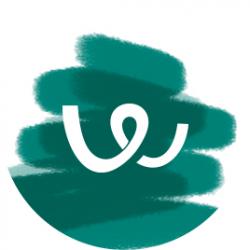4 real-life full stack developer interview questions
In the rapidly evolving world of technology, a Full Stack Developer stands out as a versatile player, adept at handling both front-end and back-end development. Their role is pivotal in ensuring seamless user experiences and robust backend functionality.
These full stack developer interview questions are directly sourced from real hiring managers and they are ready to use.

Make sure that you are interviewing the best full-stack developer candidates. Sign up for Workable’s 15-day free trial to hire better, faster.
4 good full stack developer interview questions
- We have N players. Each player is given an ID ranging from [0, N). We have K competitions and each competition contains a variable-sized subset of players. The outcome of each competition is given as an ordered list i.e., [4, 1, 0] means that Player 4 came in 1st place, Player 1 came in 2nd place, and Player 0 came in third place. Given the competitions’ outcomes, determine an overall ranking for all players.
- Explain JDK (Java Development Kit), JRE (Java Runtime Environment), and JVM (Java Virtual Machine).
- What is your favorite language and why?
- How do you keep up with the new industry trends?
Here are 4 essential interview questions with sample answers to help you identify the best candidates for this role.
1. We have N players. Each player is given an ID ranging from [0, N). We have K competitions and each competition contains a variable-sized subset of players. The outcome of each competition is given as an ordered list i.e., [4, 1, 0] means that Player 4 came in 1st place, Player 1 came in 2nd place, and Player 0 came in third place. Given the competitions’ outcomes, determine an overall ranking for all players.
This question delves deep into a candidate’s problem-solving and algorithmic skills.
Sample answer
“To determine an overall ranking, I’d employ a point-based system. For each competition, players would be assigned points based on their rank – higher points for higher ranks. For instance, in a competition with three players, the first-place player might get 3 points, second-place 2 points, and third-place 1 point. I’d then aggregate the points for each player across all competitions. The overall ranking would be determined by sorting the players based on their total points. This approach ensures that consistent performance across competitions is rewarded.”
2. Explain JDK, JRE, and JVM.
This question probes the understanding of core Java components.
Sample answer
“The JDK, or Java Development Kit, is the toolkit for developing Java applications. It includes the JRE and development tools. The JRE, or Java Runtime Environment, is the environment where Java applications run. It includes the JVM, core libraries, and other necessary components. The JVM, or Java Virtual Machine, is the engine that executes Java bytecode. It provides a runtime environment and also handles memory management and garbage collection.”
3. What is your favorite language and why?
This question offers insight into the developer’s preferences and depth of knowledge.
Sample answer
“I have a particular affinity for Python. Its elegant syntax makes it readable, and its versatility is unmatched – be it web development, data science, or AI. The extensive libraries expedite the development process, and the supportive community is a bonus, ensuring that I can always find help or resources when faced with challenges.”
4. How do you keep up with the new industry trends?
This question evaluates the candidate’s commitment to continuous learning.
Sample answer
“Staying updated is crucial in our field. I’ve subscribed to several tech newsletters, regularly attend industry conferences, and am part of various online developer forums. Additionally, I set aside time each week to explore new tools, languages, or frameworks that are gaining traction. This proactive approach ensures I’m always at the forefront of any technological advancements.”
What does a good Full Stack Developer candidate look like?
An ideal Full Stack Developer is a blend of technical prowess and soft skills. They should be well-versed in multiple programming languages, understand the nuances of both frontend and backend development, and be adept at designing intuitive interfaces. Equally important is their ability to collaborate with teams, articulate complex concepts in layman’s terms, and demonstrate a growth mindset.
Red flags
Candidates who exhibit a shallow understanding of technical concepts, resist feedback, or are unfamiliar with the latest industry trends should be approached with caution. A lack of enthusiasm for collaboration or an inability to simplify technical jargon can also be potential red flags.
